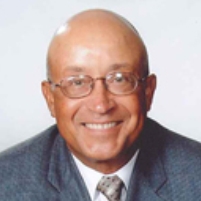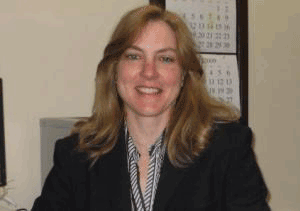NEUP funding boosts university-driven nuclear R&D
Look for the Department of Energy to keep on heavily promoting university-driven nuclear energy research and development projects for as long as Warren "Pete" Miller is assistant secretary for Nuclear Energy. Miller, an ANS member, has taken "a ![]() personal interest in the success" of the DOE's new Nuclear Energy University Programs (NEUP) initiative, according to Mary McCune, NEUP's lead program manager.
personal interest in the success" of the DOE's new Nuclear Energy University Programs (NEUP) initiative, according to Mary McCune, NEUP's lead program manager.
The DOE created NEUP in 2008 to consolidate its university support under one umbrella, combining research and development support similar to that being conducted under the existing Nuclear Energy Research Initiative (NERI, which is being phased out), along with infrastructure support and the Integrated University Program (which will continue under NEUP). According to a DOE Web site, NEUP's funding supports program directed, program supporting, and mission supporting R&D activities; human capital development activities such as fellowships and scholarships; and infrastructure and equipment upgrades for university-based research reactors and laboratories.

Pete Miller
NEUP's first awards were made in 2009; for fiscal year 2010, about $56 million-approximately 20 percent of the DOE's nuclear energy R&D budget-was set aside for various NEUP projects. McCune explained that in FY 2010, NEUP set aside about $38 million for 42 nuclear R&D projects at 23 universities in 17 states. Another $13.2 million went to 39 schools for university infrastructure, while $5 million went to support 32 fellowships and 85 scholarships under NEUP's Integrated University Program. For FY 2011, NEUP funding should be about $70 million, according to McCune. "I would say that it will keep expanding for as long as Dr. Miller is in charge," she said. (For comparison, the total NERI R&D funding since its inception in FY 1999 through FY 2007 was $185.4 million, according to a DOE Web site.)
New to the NEUP program for FY 2011 are the Integrated Research Partnership projects, which will be nuclear R&D efforts focused on three specific areas: fuel cycle simulation, fuel cycle aging of dry casks, and the development of advanced reactor technologies.
McCune said that the DOE's Office of Nuclear Energy is looking to fund these projects in FY 2011 at about $13 million. The projects would be funded for three years, with the possibility of extensions of another three years, for a total of six years. She said that Miller is "encouraging universities to form partnerships with industry and national laboratories to work on these specific challenges for nuclear energy."

Mary McCune
The R&D projects already funded in FY 2009 and FY 2010 by NEUP haven't yet been gauged for success because basically they have just begun, but McCune said that it was important to highlight the FY 2010 infrastructure awards made to the Massachusetts Institute of Technology and to Texas A&M University. "For funding university infrastructure projects, what we considered first were the safety-related types of upgrades," she said. "We are trying to ensure that those types of upgrades come first. We awarded $624 000 to MIT and $451 000 to Texas A&M, mostly in support of radiation detection upgrades and operational safety. These are the upgrades that we are concentrating on, to make sure that these university reactors are able to keep their licenses and keep going with their research."
In addition to supporting nuclear R&D at universities and improving infrastructures, NEUP's goals are to attract the brightest students to the nuclear profession and to support the nation's intellectual capital in nuclear engineering and relevant nuclear science, such as health physics, radiochemistry, and applied nuclear physics. Another goal is to facilitate the transfer of knowledge from the aging nuclear workforce to the next generation of workers.
The ANS Nuclear Cafe will continue with occasional blog posts on ongoing NEUP projects at universities. If you have a success story to tell, please contact Rick Michal at rmichal@ans.org or by phone at 708-579-8244.
Rick Michal is senior editor for ANS's Nuclear News magazine and a contributor to the ANS Nuclear Cafe.

